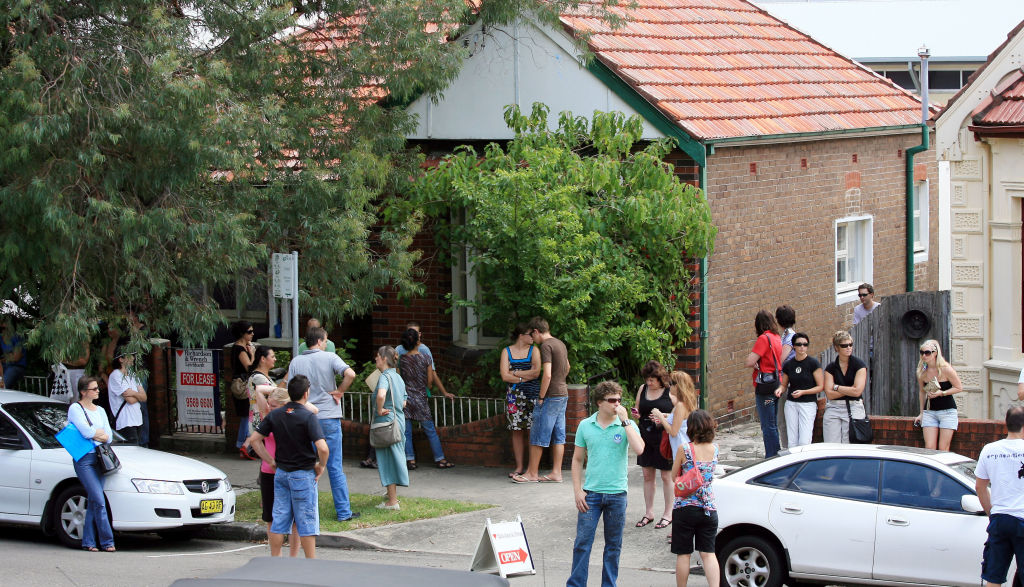'You need to be strategic': Four key things you should do now to sell your home in the new year

The clock is ticking for home owners selling this year, and with only three weeks left to find a buyer before the holidays, vendors may be in a tough negotiating position.
“There is no question that buyers have the upper hand in negotiations right now,” said auctioneer Damien Cooley. “But what buyers don’t have is the title deeds to the property. The owner is really the decision-maker on whether they sell or don’t sell.”
Home owners waiting until the new year to sell may find improved conditions, as more buyers are expected to enter the market.
But with increased competition from properties that remain for sale over the holidays, plus a wave of new listings when the market restarts, vendors looking to sell in 2019 should put in the legwork now.
Get the timing right

The property market tends to hibernate throughout January, which creates challenges and opportunities for vendors.
While activity is slower in January, listing early in the year can give vendors a jump start, according to agent Justin Follett, of Follett & Co.
“I think there is an advantage in being first off the rank,” he said. “Most vendors are advised by their agent to come on after Australia Day. But we tend to find there are buyers in early or mid-January who are looking to buy.”
Upgraders may find timing is affected by the sale of their current property, according to Nelson Alexander director Arch Staver. He recommends taking advantage of supply and demand factors.
“You need to be strategic and sell your property when there isn’t as much for sale, and try and position yourself to enter when more is coming on the market.”
This may mean varying the standard six-week settlement. “Those selling beforehand are offering a 120-day settlement,” Staver said.
Enlist a local expert

Vendors planning a sale in the new year should start choosing an agent well before the Christmas break.
“There’s no extra cost for engaging with a real estate agent early in the sales process,” said McGrath St Kilda principal Michael Townsend.
“They’ll be best able to talk about timing, public holiday impact, and potentially the impact of a federal election next year.”
Owners should identify local agents with the best results, Follett said, adding that in the current market it’s the expert negotiators who are achieving results.
Focus on presentation

Pre-sale improvements come hand in hand with agent selection, according to Staver. “Start to have discussions about what adds value to the property,” he said, explaining that owners should avoid overcapitalising.
Vendors can use the agents’ network of tradespeople to whip their property into shape, Townsend said.
“As agents, we’re becoming complete project managers,” he said “From organising trades to styling advice, we’re basically becoming a one-stop shop for a vendor.”
For smaller jobs, consider getting your hands dirty over the holidays.
I think there is an advantage in being first off the rank… there are buyers in early or mid-January.
“It’s a great time for some DIY,” Townsend said. “Get the paint tin out, tighten door handles, utilise friends and family who might be available to help with a working bee. All those little things that can make a big difference.”
As properties are spending longer on the market, smart techniques can help set your property apart from the competition, according to Follett.
“Get your photographs done before the gardens start drying out,” he said. “It’s about presenting [the property] at its optimum.”
Give buyers confidence

With buyers getting pickier, vendors should put themselves in their shoes, said CM Lawyers head conveyancer Alex Sapounas, especially when it comes to potential deal breakers.
“It’s very important for the vendors to be providing as much information about the property and any improvements they’ve done,” he said.
This can mean providing a building and pest inspection report to potential buyers, as well as evidence that renovations have approval.
“You can have a very well presented house but if you don’t have a legal extension, buyers and their conveyancers are going to be very risk averse,” he said.
We recommend
States
Capital Cities
Capital Cities - Rentals
Popular Areas
Allhomes
More










